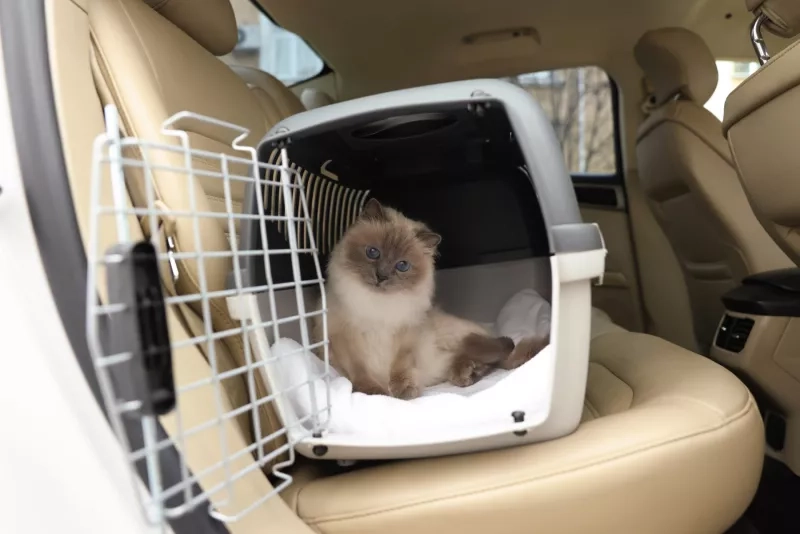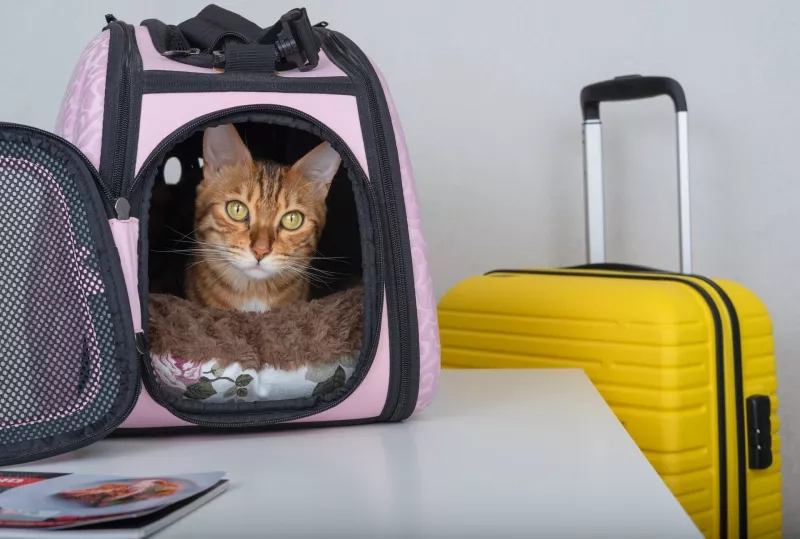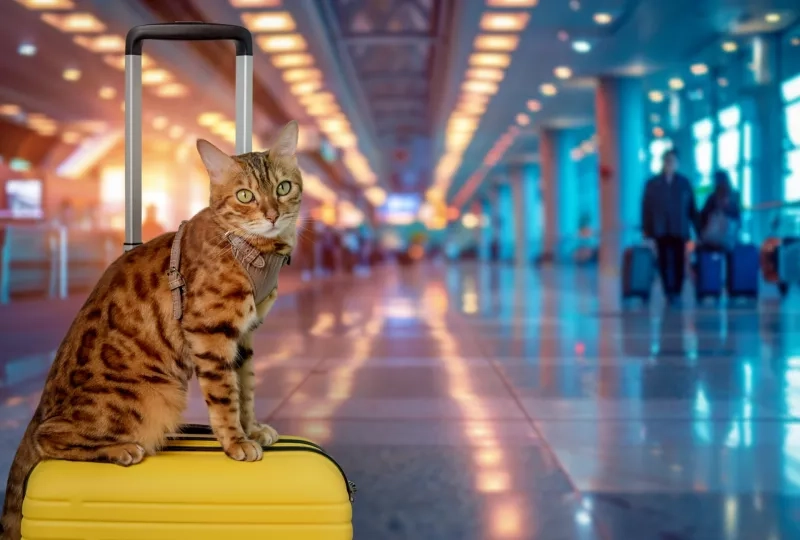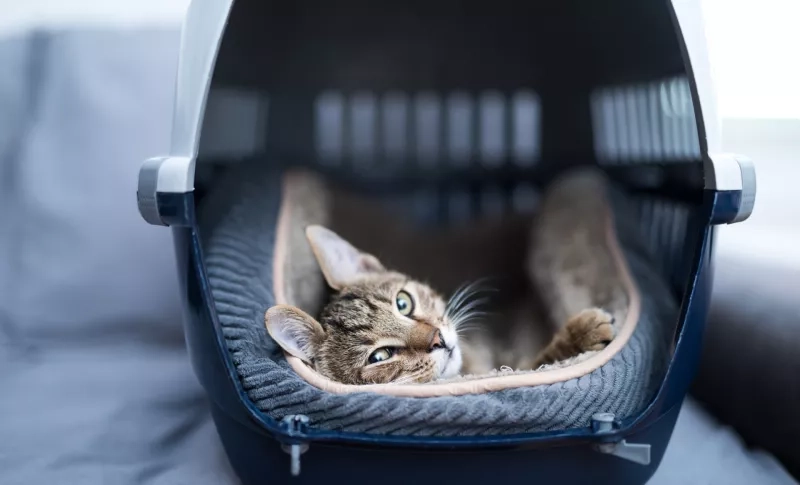
What you need to know about cat carriers
3 Minute Read
Taking to the open road with Fluffy? While not as TikTok-worthy as a bubble backpack with a rear window that lets your kitty see the world, experts say a hard-sided carrier is best for your cat's safety when you hit the road together.
A carrier for every purpose
For road trips, put your cat in a hard-sided carrier that’s tall enough that they can stand up and move around a bit. It may be tempting to get a much bigger one, but resist, because you don’t want your cat bouncing around inside the carrier.
When driving, secure the carrier with a seatbelt so it won’t move in case of an accident. Carriers can give anxious cats comfort as they provide an enclosed space. Consider how much your cat loves every cardboard box that comes into the house. Same concept here.
Cat carriers are also useful if you have to leave home quickly, due to fire or weather.

Softer case carriers work better for air travel as they’re more forgiving and fit better under the seat, where cats must travel, especially during the winter months in Canada. Meanwhile, the backpack-with-window variety works for walks around town — and, as mentioned, TikTok videos.
“If you’re flying with your cat in the cabin, you have to be able to put their carrier under the seat in front of you,” says Maggie Brown-Bury, a veterinarian and Newfoundland representative on the Canadian Veterinary Medicine Association.

Brown-Bury suggests using a leash or harness when flying with your cat, as you will need to take them out of the carrier during security screening.
“They’re not going to put a living animal through the [bag scanner], so you go through the people’s scanner by yourself and then you go back, take your animal out of the carrier, and walk through with them.”
Whatever carrier you buy, it’s a good idea to get your cats used to it by making it available to them at home.
When it comes to feeding before a trip, do it four to six hours before you leave, and then limit their water. This will give them time to digest and then use the litter box before your departure.
Brown-Bury says you can also speak to your vet about a sedative to keep your cat calmer during travel, but she suggests trying it before you travel so you know how your cat reacts to it.
Carrier cargo

While it might be tempting to try to fit food and water into the carrier, it’s not recommended. But don’t hesitate to add a cozy blanket, or an article of your clothing for comfort (assuming, of course, that your cat likes you. They are fickle creatures, after all.)
And don’t even think about putting litter in there. Instead, if you’re going on a long car trip, have a disposable litter box elsewhere in the car and plan to make stops for them to relieve themselves when you do.
Documents checklist
Taking your cat stateside, or across the pond? Check your destination’s entry requirements. Some places require proof of rabies shots, ownership, microchip information, and spaying or neutering. You may also need a printed Canadian International Health Certificate from your vet and endorsed by a government veterinarian.
Either way, pack that microchip info in case Garfield takes off. Kitty litter should also go in your trunk or your suitcase along with your cat’s medication, with extra in case you experience delays.
Finally, if you’re flying, be sure to register your cat with the airline in advance. There are usually fees associated with transporting them.
Insurance for kitty's travel, too
Just as you buy travel insurance for yourself, consider purchasing travel insurance for your cat. Vets recommend it because it allows you to make the best treatment choice, should your kitty take ill.
“Having pet insurance is very helpful,” Brown-Bury says. “An emergency clinic is always going to be more expensive. Having pet insurance in place gives you a little bit more confidence in being able to afford whatever care you might need.”
CAA has partnered with Pet Plus Us to offer pet insurance; Members receive a 13.5 per cent discount (and non-Members can save nine per cent). Call 1-833-323-2452 or get a quote online.*
*CAA Members receive a preferred rate of 13.5% off effective April 15, 2024. Non-members receive a preferred rate of 9% off. Discounts vary and are subject to change.
The information herein is summarized, the actual policy issued Terms and Conditions will prevail. All Pet Insurance plans have limitations and exclusions. Specific products, features, rates, and discounts may vary by province, eligibility, and are subject to change.
© 2024 All rights reserved. Pets Plus Us Pet Insurance policies are underwritten by Northbridge General Insurance Corporation, distributed by PTZ Insurance Services Ltd. & Société d’Assurances Collectives (Sodaco) Inc. in Quebec.




